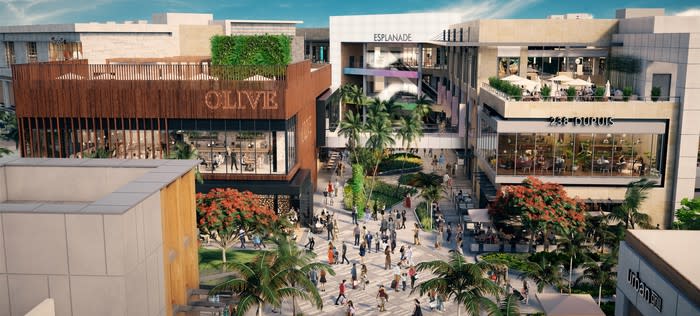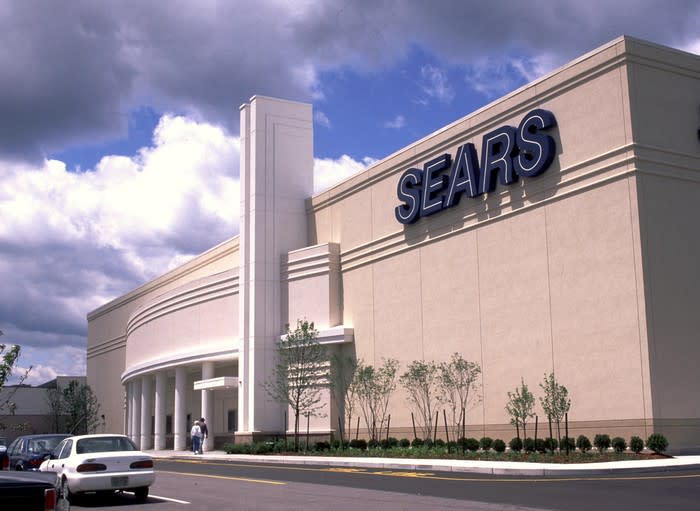The Sears Bankruptcy Headwind Is Fading for Seritage Growth Properties
Four years ago, Sears Holdings spun off Seritage Growth Properties (NYSE: SRG) through a rights offering, selling more than 250 real estate properties to the newly formed REIT. In the following years, Sears closed stores at a rapid pace, causing Seritage's adjusted funds from operations (FFO) to decline consistently.
The iconic retailer finally filed for bankruptcy protection last fall. While controlling shareholder Eddie Lampert kept the company from going out of business entirely, the bankruptcy led to another wave of store closures -- and some rent reductions, too. As a result, Seritage's adjusted FFO collapsed, forcing the REIT to suspend its dividend earlier this year to conserve cash.
FFO trends are finally stabilizing. And with lots of big redevelopment projects slated for completion over the next few quarters, Seritage should benefit from strong FFO growth beginning in early 2020.
Lots of leasing activity, but not a lot of rent yet
Since being spun off from Sears, Seritage's strategy has been to recapture space from its former parent, redevelop it, and then lease it to new tenants that will pay much higher rent. Thus far, new leases have come in at an average of four times the rent Sears and sister chain Kmart had been paying.

Furthermore, Seritage has been negotiating new leases at a rapid clip. As of June 30, it had signed leases from third-party tenants (i.e. not Sears or Kmart) for a total of $165.5 million in base rent: up from $62.6 million three years earlier.
However, annual base rent from Sears and Kmart has plummeted from $151 million to a mere $20.3 million over that same period. Making matters worse, only $79.8 million (48%) of Seritage's third-party rental income is classified as "in-place" today. The other 52% consists of signed-not-opened (SNO) leases that won't begin generating rent until sometime in the future: typically, after Seritage completes construction work on that particular space.
The result is that Seritage's annualized in-place rent stood at just $100 million by the end of last quarter, down from nearly $190 million three years earlier. Given that context, it's not surprising that adjusted FFO per share came in at negative $0.11 last quarter, compared with $0.58 in Q2 2016.
The tide is turning
The good news for Seritage shareholders is that FFO is finally bottoming out. Adjusted FFO per share fell by $0.26 year over year last quarter -- landing at negative $0.11 -- but declined by just $0.02 compared with the first quarter of 2019. Importantly, the contribution from Sears has fallen so far that any further declines would have a fairly minimal impact on Seritage.

Meanwhile, a substantial chunk of Seritage Growth Properties' $85.7 million of SNO leases will come on line by the end of 2020. More than a dozen properties have been delivered to the new tenants recently and will start generating rent soon. Another 17 redevelopments -- including some of Seritage's biggest projects -- are scheduled to be "substantially complete" by the end of this year, although the new tenants may not start paying rent until a couple of quarters later.
In all, management expects in-place rent from tenants other than Sears and Kmart to reach $235 million within about two years, compared with $100 million today. That includes the impact of existing SNO leases, as well as expected future leasing activity for redevelopment projects already under way. Annual FFO per share would probably push past $2.00.
Liquidity is the key challenge -- but it should be manageable
The biggest potential problem facing Seritage is that the redevelopment work it's carrying out is extremely costly. Management estimates that the REIT will have to spend another $745 million to $820 million to bring its existing projects to completion.
Seritage's cash balance had dwindled to $325.5 million by the end of last quarter, down from $533 million at the beginning of the year. However, it has $63.3 million of assets under contract to be sold -- mainly vacant former Sears and Kmart stores. In addition, Seritage has the right to access another $400 million under a loan facility provided by Berkshire Hathaway, subject to certain conditions.
The most important of those conditions is that annual base rent -- including SNO leases -- must reach $200 million. Seritage isn't there yet; annual base rent currently stands at $185.8 million. However, the REIT has been signing new leases at a rapid clip, averaging more than $10 million in incremental annual base rent each quarter. That suggests Seritage will probably surpass $200 million in annual base rent by year-end.
That should be soon enough to avert a near-term liquidity crunch. The extra $400 million will then tide Seritage over until it becomes firmly cash-flow positive. At that point, it will be in better shape to seek additional financing that could fund future redevelopment work, enabling the Sears spinoff to capitalize on its substantial long-term value creation opportunities.
Adam Levine-Weinberg owns shares of Seritage Growth Properties (Class A). The Motley Fool owns shares of and recommends Berkshire Hathaway (B shares). The Motley Fool is short January 2021 $200 puts and long January 2021 $200 calls on Berkshire Hathaway (B shares). The Motley Fool has a disclosure policy.
This article was originally published on Fool.com

 Yahoo Finance
Yahoo Finance 